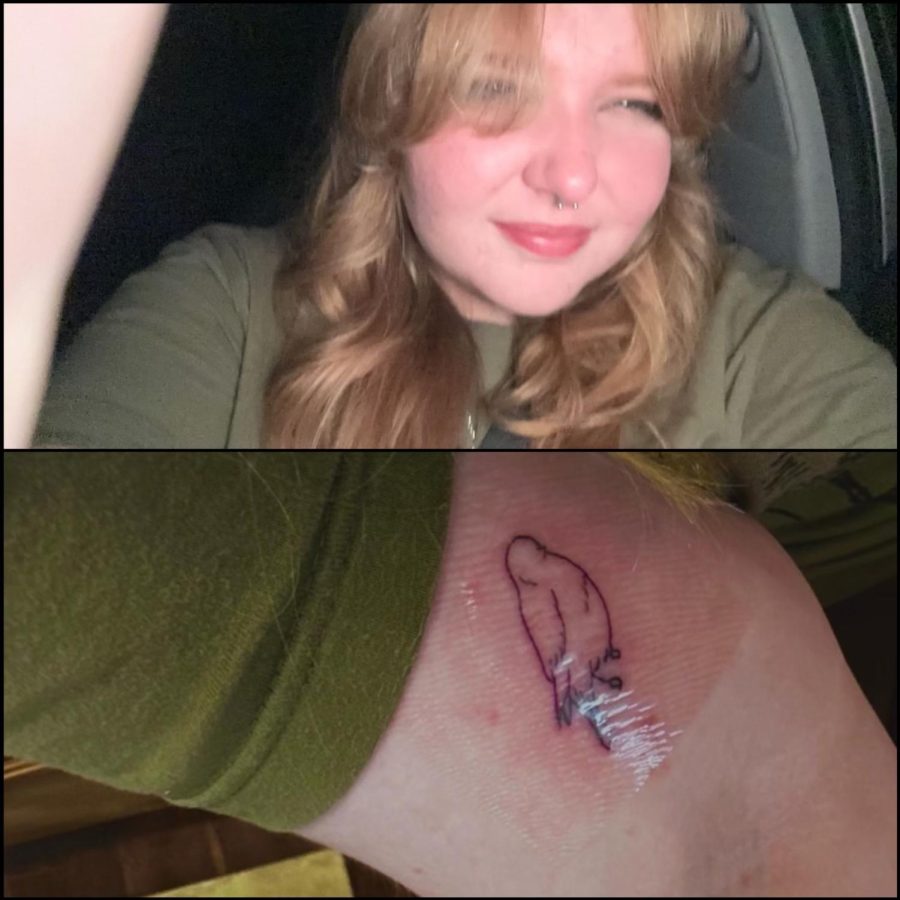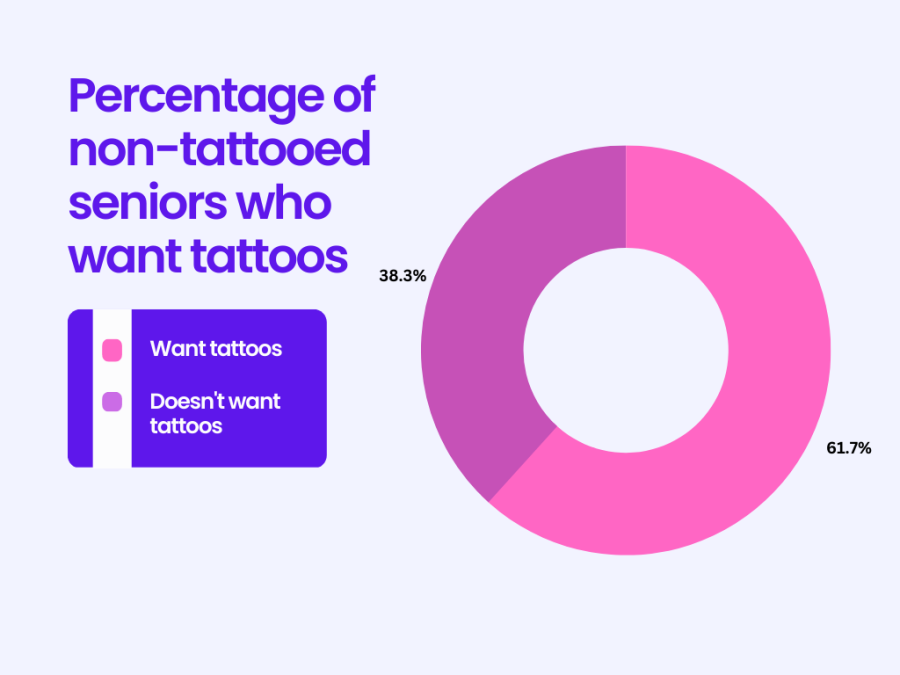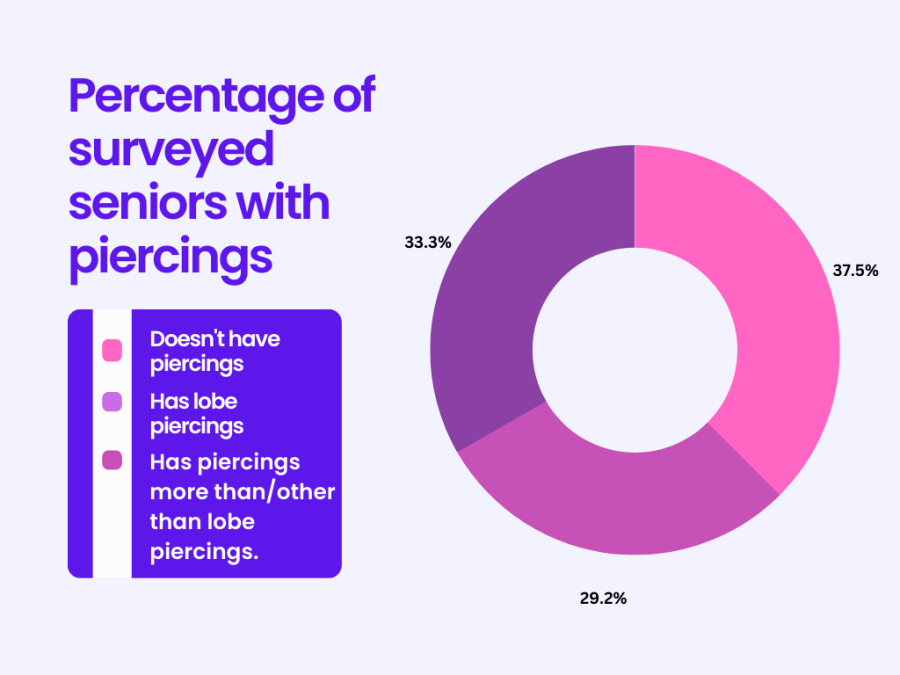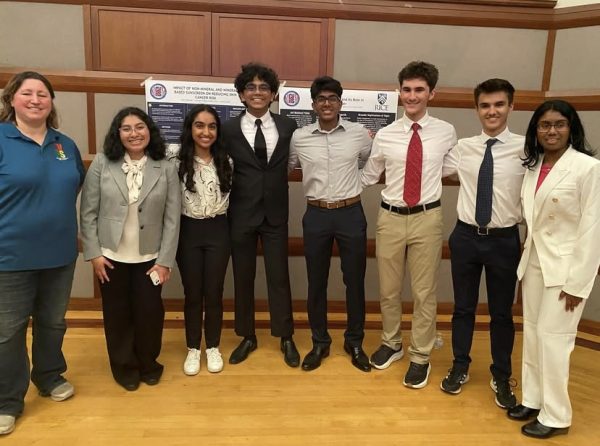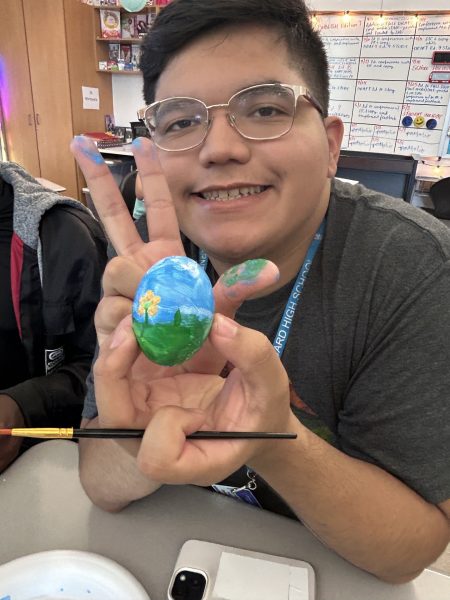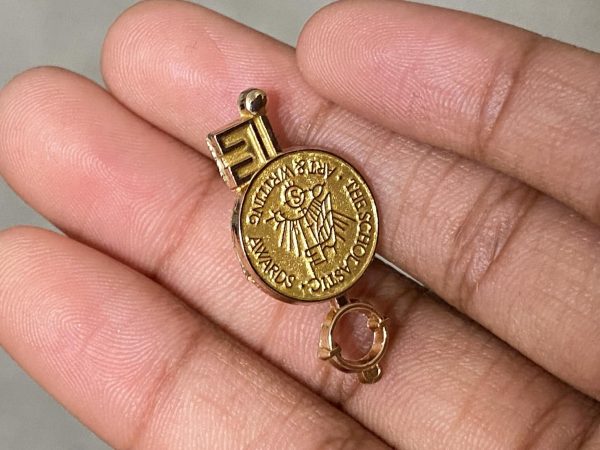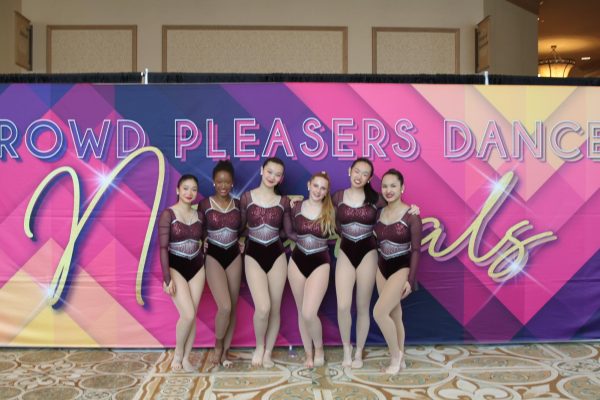Majority of CVHS seniors surveyed want or approve of body modifications
Senior Maren Werner shows her body modifications to the camera, a bird tattoo and a septum piercing. (Credit to Maren Werner)
In a survey of 48 CVHS seniors, 16.7% stated that they have permanent tattoos, and 61.7% of those who did not have tattoos wanted one in the future. This correlates with a noticeable trend in Generation Z, where there is a more open acceptance of and desire for body modifications. Body modifications are artificial, permanent changes made to one’s body, most commonly seen as permanent tattoos and piercings. This trend directly goes against the Western precedent of associating body modifications with criminal or anti-religious behavior.
“In the ’50s and ’60s, people who got tattoos were mainly sailors in the navy and those in prison. People had a negative stigma against people like that, because to get tattoos or to know someone who would give you a tattoo was very outside of the box back then. It kind of symbolizes that you’re a part of this culture or crowd that didn’t really go along with the 1950s American cookie-cutter, nuclear family stereotypes,” senior Roma Taylor said. Taylor has two lobe piercings and plans to get no other body modifications.
In direct contrast to the America of the 1950s, safe, sterile and affordable body modifications are more accessible than ever. With new chain stores such as STUDS providing reasonably priced and safe ear piercings and tattoo parlors of varying quality dotted all around Houston, getting body modifications has never been easier for CVHS students of legal age. It has also never been trendier due to the continuous rise in popularity of apps like TikTok. Just the hashtag “tattoo” has over 137 billion views on the app.
“With the rise of TikTok, there are obviously more people wanting to get tattoos and piercings. I’ve seen the rise of Pinterest tattoos or just patchwork that’s literally the exact photo they saw on Pinterest, and they said, ‘I want that,’ and I’ve seen people regret those pretty fast,” senior Maren Werner said. Werner has a tattoo, lobe piercings and a septum piercing, and they plan to get more.
The majority of tattooed students at CVHS tote smaller tattoos with finer lines, which lend themselves to the patchwork style. The patchwork style refers to the practice of getting multiple unrelated tattoos on the same part of the body rather than covering it with something more traditional — think an arm full of tiny things, rather than a complex sleeve.
The style is especially popular among Generation Z, likely because it is cheaper in the short term to get individual tattoos. It also allows for more space to get different tattoos with different meanings, which allows for the type of creativity Gen Z tends to prefer (absurd, maximalist, etc.).
It is also, again, immensely popular on apps like TikTok, YouTube and Pinterest, where many creators lean into the patchwork style. One hallmark of the style is the new sentiment among Gen Z that tattoos don’t need to have some deep, specific meaning — they’re allowed to just look cool or aesthetically pleasing.
“I have friends who have a lot of fine-line tattoos that are [simpler] and smaller. Kind of children’s illustration style, like, just black line tattoos that are a little bit silly and goofy. They kind of reject the whole notion of tattoos being permanent forever, by being whimsical and silly and a little bit stupid,” Taylor said.
However, that doesn’t mean meaningful tattoos are entirely a thing of the past. They’re still popular and often exist to commemorate some sort of achievement, friendship or the death of a loved one.
“My sister and I both have the same tattoo but in a different place. They’re both for our grandma, who recently passed away. She used to give us little ‘bluebirds of happiness,’ [which] is what she called them. So, it’s a little bluebird statue with a card. This way, I always have a piece of her with me,” Werner said.
However, while tattoos are often expected to have some sort of meaning, piercings are usually expected to only be for aesthetic purposes. While most people assigned female at birth are often expected to get their earlobes pierced at some point in their lives, all other types of piercings are traditionally looked down upon in Western society, again due to association with criminal behavior.
Most Gen Z children can recount a story of their parents telling them that they can’t get a nose piercing lest they look like a cow. However, Gen Z has largely been rejecting this notion once again; nose jewelry, for example, has become extremely noticeably popular. Many students at CVHS have some sort of nostril stud or septum piercing. In the same survey of CVHS seniors, 29.2% stated that they have non-lobe piercings, and 62.5% expressed a want to get any piercing.
“I’ve always wanted a septum — well, I’ve always wanted a nose piercing, [and] my sister has her nostril pierced. I saw it when I was eight or nine, and I thought it was the coolest thing. I was like, ‘I want that.’ But as I grew older, I learned about this other piercing that would look a lot better on me. So, I got that done,” Werner said.
Despite the popularity of both tattoos and piercings growing, many still speculate that piercings will remain more popular in the future. Many tend to see them as less of a commitment, and if body modifications remain to be viewed as unprofessional when the CVHS class of 2023 enters the workforce, they can be easily removed.
“Tattoos tend to face more stigma than piercings because, for the most part, piercings can close over and do their thing. But tattoos, they’re fairly permanent. Once you have it, you’re stuck with it to some extent,” Taylor said.
It is because of reasons like this that many students choose to get no unorthodox body modifications at all. Many don’t feel that they are ready for the commitment, or they feel that their brain is not developed enough to make the choice to get one. Others may not like the style or think they match the future profession they’re aiming for.
“I suppose it’s one of the things I don’t want. People like that are really cool, they’re [body modifications] forms of art. I think it’s really interesting and fascinating. I just don’t want to have something on me for the rest of my life. I’m bad at commitment and I think a decision like that would do nothing but terrify me. I just could never decide that something that was important enough for me to have on my body for the rest of my life,” Taylor said.
One of the main stigmas surrounding body modifications is the idea that they are “unprofessional” in some way or another. Many older people will not hire those with visible tattoos or piercings and still associate the now-common practice with criminal or gang behavior. However, in the survey, seniors were asked to rate how unprofessional they felt piercings or tattoos were on a scale of one (not unprofessional at all) to five (very unprofessional), and their answers only averaged out to about a 2.1 for tattoos and a 1.9 for unorthodox piercings.
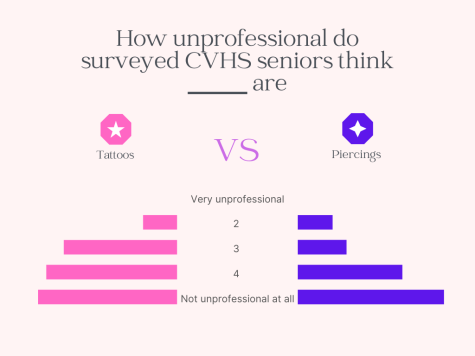
“I see a lot of people with professional jobs, such as lawyers, with tattoos now. I see the older generation still kind of scoffing at them but, as Gen Z and Millennials [have] kind of come into our own, they don’t really care. It’s like it’s something you can do, and if you want to, you can just cover them with clothes,” Werner said.
Overall, body modifications are more acceptable now than they have been in the past century. More and more people of legal age have been getting them or planning to get them, including many CVHS seniors. While they were traditionally looked down upon as unprofessional, Gen Z seems more than willing to accept them into the workplace. Whether the piercing is in a lobe or a nose bridge, whether the tattoo has all the meaning in the world or portrays a rat skateboarding, body modifications are safer now than ever before.
“I think people should do what makes them happy. If you want tattoos, get tattoos! If you don’t, don’t. Don’t judge people for their choices. We’re all just trying to be our best people,” Taylor said.
Your donation will support the student journalists of Carnegie Vanguard High School. Your contribution will allow us to cover our annual website hosting costs and fund field trips, competition fees, and equipment. We appreciate your support!
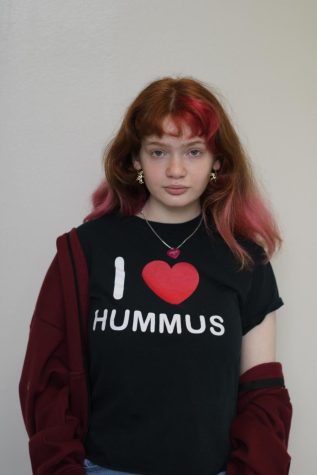
Danielle is a senior, as well as an activist for queer and feminist rights, which often makes its way into her writing. She is a family and friendship-oriented...

